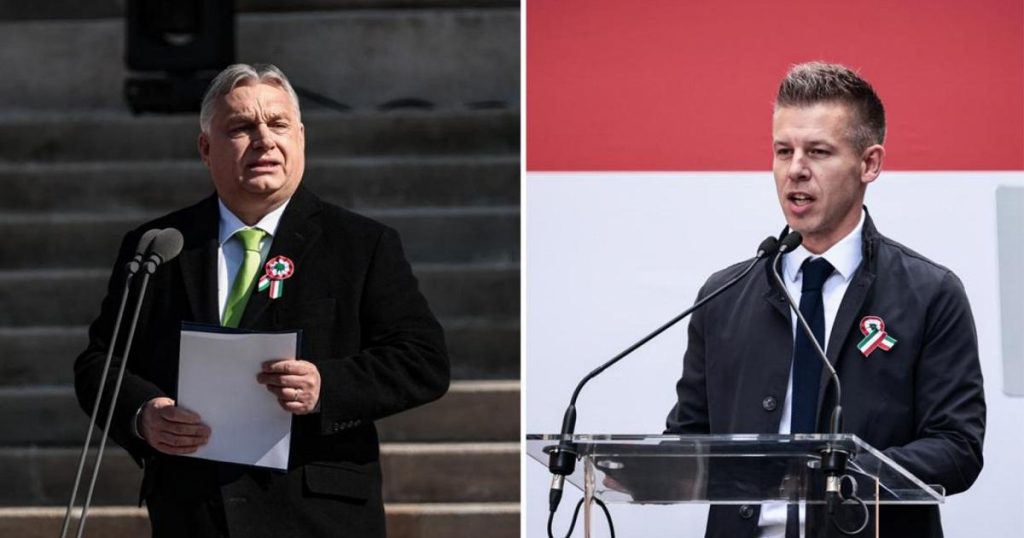With less than a month to go before the European elections, the rise of right-wing populist and sovereigntist movements across the continent could lead to some interesting surprises in Hungary under Viktor Orban’s leadership. Recent polls show that Orban’s party, Fidesz, is polling at around 45%, an 8% decrease from the previous election in 2019. If this trend continues, it would be Orban’s worst electoral performance in the last decade. This decline is largely attributed to Péter Magyar, a former ally and Fidesz member, who is gaining popularity in the opposition with his new movement, Tisza, now polling at around 25%, significantly lower than Fidesz but still a notable achievement given the rapid growth in voter support and the impact on the opposition parties. Magyar has announced that Tisza will field twelve candidates in the upcoming elections, with himself as the lead candidate.
Magyar’s rise in popularity is evident in the large turnout at his campaign events, such as the recent rally in Debrecen where 10,000 people showed their support. Magyar’s message of cooperation, love, unity, and peace has resonated with many Hungarians who are tired of the current elite in power. The support for Magyar is particularly strong in rural areas, and his movement has mobilized voters across the country. However, Orban’s troubles may stem from a corruption scandal involving his ex-wife, Judit Varga, and former Justice Minister, Katalin Novàk. The scandal, exposed by Magyar, contradicts Orban’s image as a defender of traditional values and has led to the resignation of both Varga and Novàk. Magyar’s revelation of corruption within the government has further complicated the situation and eroded trust in Orban’s administration.
As a former member of Fidesz, Magyar’s Tisza party has become the leading opposition party in Hungary, attracting undecided and disenchanted voters away from Fidesz. The timing of these electoral shifts is significant, given the recent visit of Chinese President Xi Jinping to Hungary, marking the 75th anniversary of diplomatic relations between Beijing and Budapest. The visit resulted in numerous bilateral agreements in various sectors, positioning China as the second-largest investor in Hungary after Germany. The economic ties between China and Hungary have strengthened, raising questions about the potential influence of external actors on Hungary’s domestic politics.
The outcome of the European elections in Hungary remains uncertain, with Magyar’s Tisza party posing a significant challenge to Orban’s Fidesz. The election results will not only determine the future direction of Hungarian politics but also impact Hungary’s upcoming presidency of the Council of the European Union starting on July 1st. The influence of both internal and external factors, such as corruption scandals, the rise of populist movements, and increased foreign investment, will shape Hungary’s political landscape in the coming months. The upcoming election will be a crucial test for Orban and his party, as they navigate through a changing political environment both domestically and internationally.















